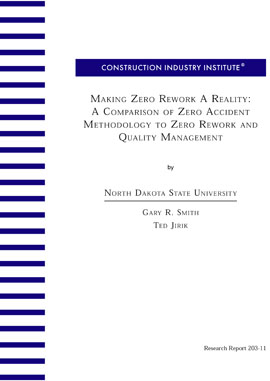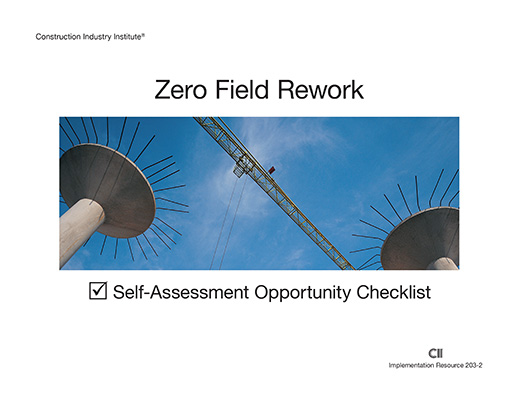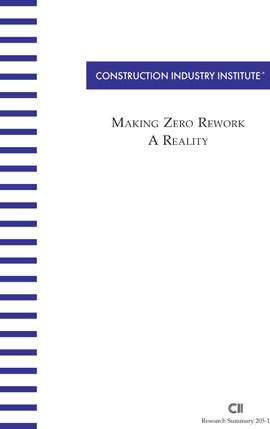
Making Zero Rework A Reality: A Comparison of Zero Accident Methodology to Zero Rework and Quality M
While the construction industry has made great strides in improving its safety record over the last decade, the same cannot clearly be said regarding rework. Rework measures over the past decade have not shown any measurable improvement. Therefore, the Construction Industry Institute sponsored the “Do It Right the First Time” Research Team to investigate what can be learned from safety program implementation that might impact rework. The research identified and described the major components of a comprehensive process for management and elimination of quality-error related costs for construction sites. The focus of this project was on the implementation of error-reduction activities on the project execution level.
The research team looked at methods and techniques that have been effective in implementing safety management and in reducing accidents and lost workdays in construction. A survey that engaged respondents on safety management and quality or rework questions was developed. It found that management support and pre-project tasks for were consistent for both safety and quality activities. One difference occurs in the implementation level between planning and field execution. Most importantly, the research found that worker involvement is needed to resolve the continuing problem of rework. Specifically, the research team found that increasing training on quality issues, identifying quality rework problem areas, increasing full-time quality staff, and having field personnel analyze pre-task quality efforts all contribute to less rework.
Tracking rework was very common on the study projects. Investigation of rework or defects was less common than for safety incidents.
Is there a near-miss and quality error reporting system that initiates investigations at the project site and by upper management? In general rework and quality investigations, except for a limited number of respondents, do not have as formal a reporting process which could be an area for improvement.
Quality errors and near-errors also require investigation and reporting. (RR203-11, p. 65)


